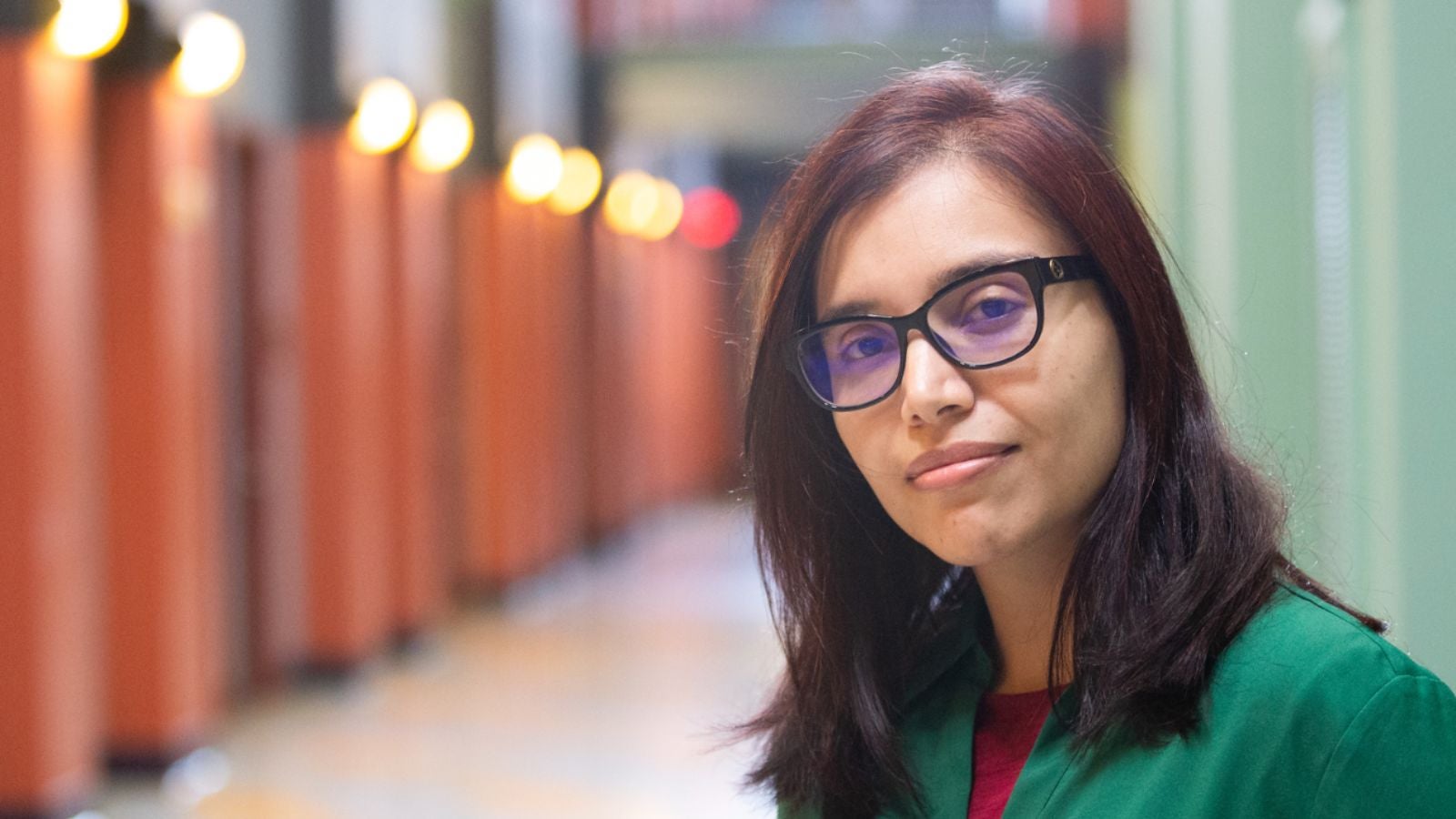Anjum Chida, who joined Rice University’s Department of Computer Science as a lecturer this fall, comes to the department with a background in applying machine learning techniques to evaluate 3D protein models. Chida teaches a graduate-level introduction to programming course for non–computer science majors and courses in advanced reasoning with computers.
A curiosity about AI sparked Chida’s interest in CS and took her to the University of Madras, where she received a Bachelor of Engineering degree in 2004. “When I was an undergrad, AI was not as big a buzzword as it is now,” she explains. “Everything I knew about artificial intelligence was from movies. So I wanted to know: ‘What is AI?’” At that time, the computer science field was focused more on bioinformatics discoveries related to the “holy grail” of DNA, so “that was the research area we were working on,” and this led to graduate studies centered on protein models. She received a master’s and, in 2012, a doctorate in computer science from Georgia State University.
During her first semester at Rice, Chida, who is coming from the University of Texas Dallas (UTD), a large state school, plans to acclimate herself to a private university with a smaller class size and concentrate on “how to be the best teacher.”
Being an effective computer science educator has been her focus since 2015, when she began at UTD.
“I faced significant challenges during my first few semesters because I wasn't connecting with the students on a deeper level. I struggled, thinking that since I was strong in math and computer science, I should naturally be a good teacher.”
She soon learned that knowing and loving the subject matter did not necessarily translate into being an effective teacher. “I had to learn how to slow myself down, how to connect with [students],” she says.
“I shifted my focus from myself to the students,” she explains. “And once I did that—wow!—it completely transformed my perspective on teaching.”
Chida took advantage of teaching and learning workshops at UTD, led by professors of psychology, and was initially doubtful how they might help her teach computer science.“As someone from STEM, I initially thought, ‘That’s not relevant to me—I teach math and algorithms, so their methods probably don’t apply.’ But their techniques turned out to be incredibly effective, and that’s what shifted my perspective.”
Her use of reflective teaching--which involves critical thinking, reflecting on what works, what doesn’t, and what needs to change in the classroom--forms the basis for Scholarship on Teaching and Learning (SoTL) studies. Chida is currently involved in SoTL projects that combine her research and teaching experience with the aim of advancing CS education.
She also wants to explore how human beings interact with AI. “Humans have a unique tendency to ascribe meaning to everything,” she says. “So, who is truly intelligent? Is it the AI or us?” Chida envisions a course that would unite psychology and computer science students to explore such questions, examining which aspects of AI might be deemed “intelligent” and attempting to define what “intelligence” really is. “‘Intelligence’ is an abstract concept, similar to ‘love,’ ‘justice,’ or ‘peace’—we don’t fully understand it; we only have a vague sense of what it means,” she explains.
Chida’s focus consistently returns to how to teach the subjects that fascinate her. When strangers ask her what she does, “I always say, ‘I teach.’”
“The most rewarding part of teaching is when a student struggles to understand something,” she says. “I explain it, and they still don’t grasp it... Then I offer different examples, and suddenly it clicks for them, and they experience that ‘a-ha’ moment. It’s a genuine and gratifying feeling. When they truly understand, their happiness is unmistakable.”

